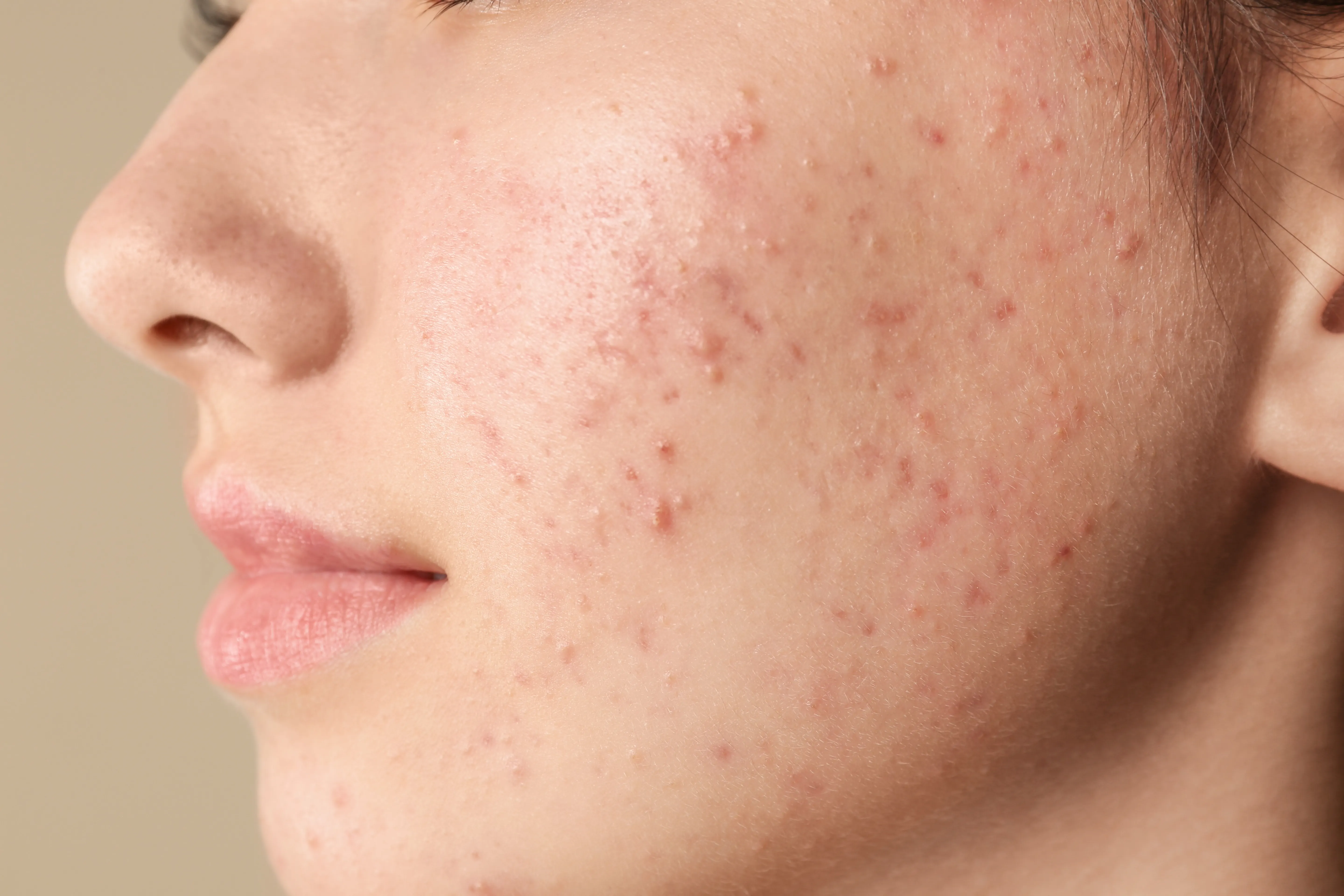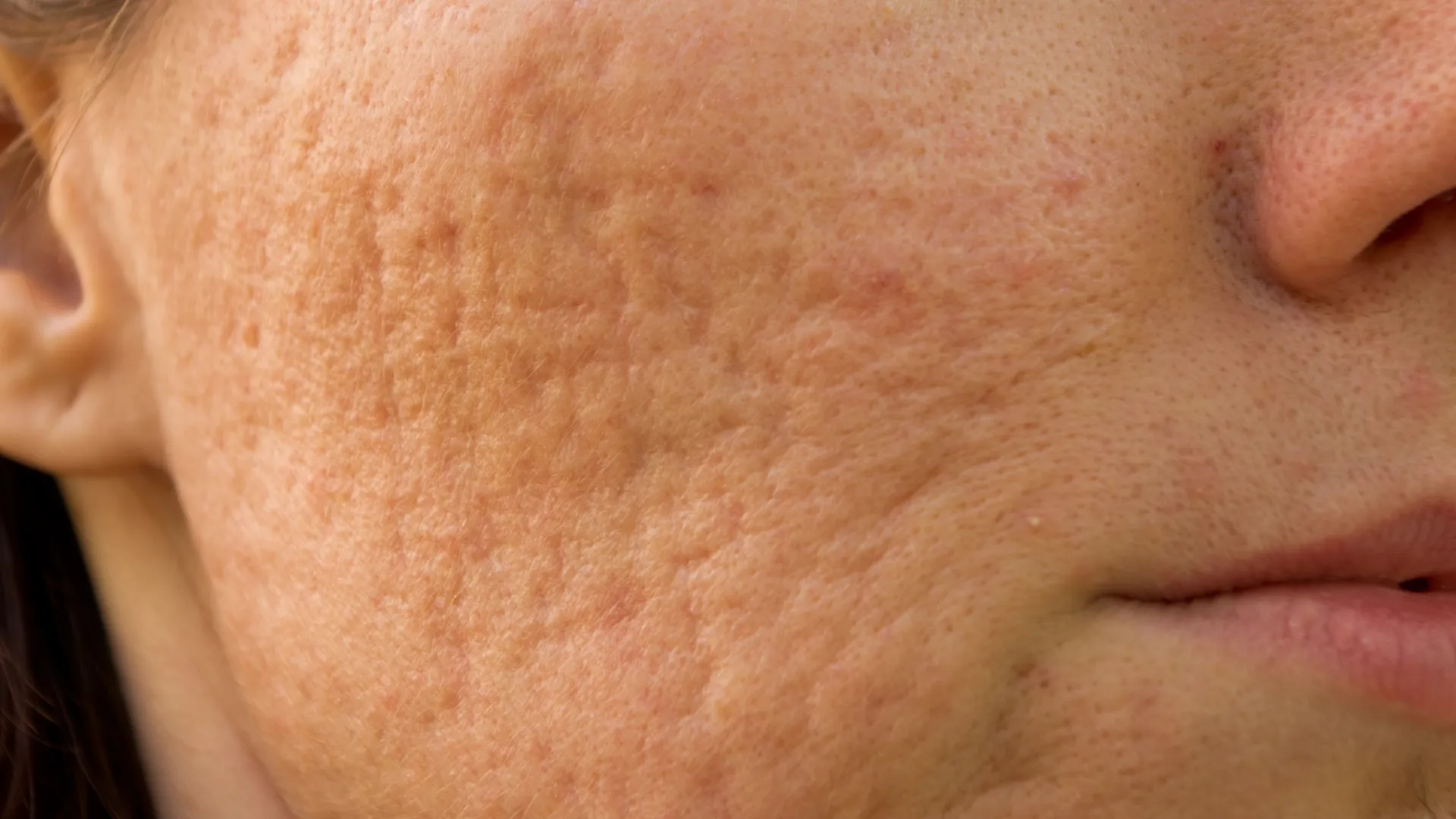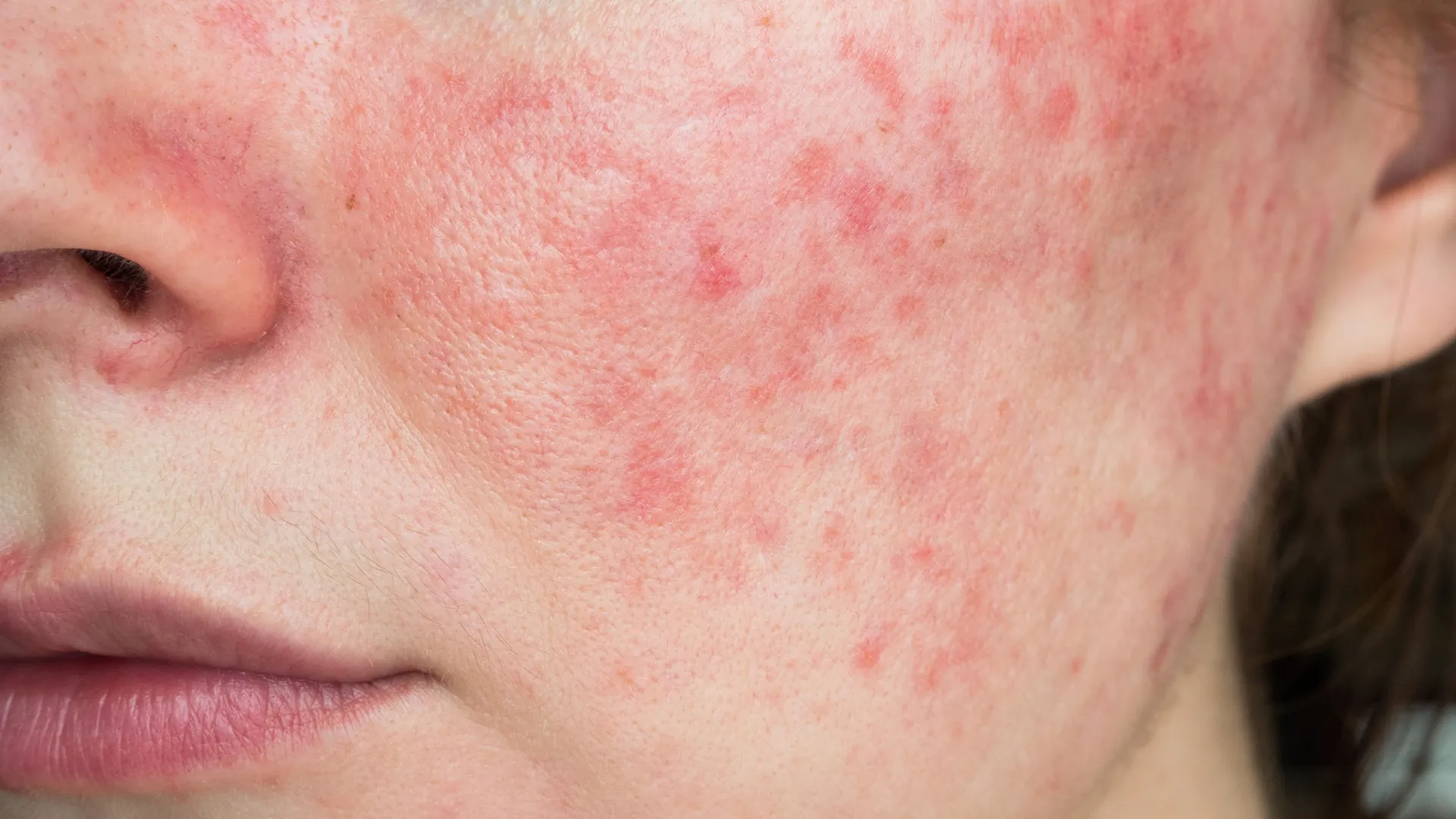Acne
Quick Summary (TL;DR): Acne affects up to 85 % of teenagers and many adults (Williams et al., 2012). It results from excess sebum, follicular blockage, C. acnes proliferation and inflammation. With personalised medical treatment and the right at-home routine, breakouts can be controlled and scarring minimised.
Acne is one of the most common skin conditions affecting millions of people worldwide. While it’s often associated with adolescence, adults can also experience breakouts. At UniqSkin, we are dedicated to helping you understand acne and find effective treatment options.
Causes of Acne
The etiology of acne is a combination of many factors :
- Disorder of keratinization, which leads to blockage of the duct of the sebaceous gland.
- Increased sebum production from the sebaceous glands
- Overgrowth of bacteria, such as Propionibacterium acnes
- Increased local inflammation
- Genetics
Aggravating factors in acne
Acne occurs when hair follicles become clogged with oil, dead skin cells, and bacteria. Several factors contribute to this process, including:
- Hormonal Changes: Hormonal disorders can increase oil production.
- Genetics: A family history of acne.
- Stress
- Certain Medications: Some drugs can contribute to breakouts as a side effect.
- Fagesorogenic cosmetics
- Diet: Some studies suggest that high-glycemic foods and dairy may exacerbate acne for some individuals (Cordain et al., 2002).
Symptoms & Clinical Features
Acne lesions appear in areas where the sebaceous glands are most active (face, back, chest and shoulders). The lesions are divided in the following categories:
-
Non-inflammatory lesions: Open comedones (blackheads)/ Closed comedones (whiteheads)
-
Inflammatory lesions: Papules/ blisters/ nodules/ cysts
-
Scars / Postinflammatory hyperpigmentation:
-
Boxcar scars
A type of atrophic scar. They are broad depressions in the skin that usually appear box-like in shape.They have well defined edges. Most often found on the lower cheeks and jaw.
-
Icepick scars
Also a type of atrophic scar. They are narrow and deep like small needle punctures. The most challenging to treat.
-
Rolling scars
Depressions in the skin that have a wave-like texture with not well defined edges. They are formed when fibrous bands of tissue pull the epidermis down towards the subcutaneous tissues below. This type will get worse as you age and your skin loses elasticity.
-
Hypertrophic / keloid scars
Thick, wide, raised scars that can occur when during the healing process, the body produces excess collagen. In rare cases, keloid scars can develop. They mainly appear in the back, shoulders and chest.
-
Postinflammatory hyperpigmentation
The darkening of the skin following an inflammation.
-
Treatment options for acne
At UniqSkin, we offer a variety of treatment options tailored to your individual needs:
- Topical treatments: Creams and gels containing ingredients like benzoyl peroxide, antibiotics, azelaic acid or retinoids
- Oral medications: Antibiotics, isotretinoin or hormonal treatments may be prescribed.
- Deep medical cleaning: Can be performed on face and body, suitable for all ages.
- Chemical peelings: Most commonly used for acne are salicylic, azelaic or mandelic acid.
- Diamond microdermabrasion: A non-invasive procedure. With a special medical device (Ecopeel) only the outermost layer of the skin is exfoliated. At the same time, surface pollutants, dead cells and accumulated sebum are removed and an instantly cleaner, smoother and brighter skin is revealed.
- Skincare routine
Treatment options for acne scars
- Microdermabrasion with crystals (Ecopeel)
- Dermapen 4: The multiple micro-injuries caused to the skin in combination with the substances used lead to collagen production and gradual scar improvement.
- Fractional laser CO2: Can be combined with PRF for even better results.
- Chemical peels
- Hyaluronic acid fillers: Used to fill atrophic scars.
Prevention & Home Care
- Use a gentle cleanser twice daily.
- Choose non-comedogenic, oil-free cosmetics and sunscreen.
- Avoid repeatedly touching your face or pressing a phone against your skin.
- Follow a balanced, low-glycaemic diet and limit dairy if you notice flare-ups.
- Manage stress with relaxation techniques or regular exercise.
Frequently Asked Questions
-
Is acne only a teenage problem?
While acne is most common during adolescence, adults can experience it as well. Factors like stress, hormonal fluctuations, and certain medications can lead to adult acne. This type is usually mild to moderate, but it is more resistant. It is found mainly on the chin, around the mouth and on the neck.
-
What can I do to prevent acne?
To help prevent acne, maintain a consistent skincare routine using non-comedogenic products, avoid touching your face, and keep hair products away from your skin. A balanced diet and lower stress levels can also contribute to healthier skin.
-
Will acne scars go away?
While some acne scars may fade over time, others can become more visible as your skin loses elasticity. Treatments like laser therapy, microdermabrasion, Dermapen and chemical peels can help improve their appearance.
References
- Williams HC, Dellavalle RP, Garner S. Acne vulgaris. Lancet. 2012;379(9813):361-372. doi:10.1016/S0140-6736(11)60321-8
- Gollnick H, Cunliffe W, Berson D, et al. Management of acne: report from a Global Alliance to Improve Outcomes in Acne. J Am Acad Dermatol. 2003;49(1 Suppl):S1-S37.
- Thiboutot D, Gollnick H, Bettoli V, et al. New insights into the management of acne: update from the Global Alliance. J Am Acad Dermatol. 2009;60(5 Suppl):S1-S50.
- Zaenglein AL, et al. Guidelines of care for the management of acne vulgaris. J Am Acad Dermatol. 2016;74(5):945-973.
- Cordain L, Lindeberg S, Hurtado M, et al. Acne vulgaris: a disease of Western civilization. Arch Dermatol. 2002;138(12):1584-1590.
- Meixiong J, Ricco C, Vasavda C, Ho BK. Diet and acne: a systematic review. JAAD Int. 2022;7:95-112.
Conclusion
Understanding acne is the first step in managing it effectively. At UniqSkin, we are here to help you and find the best treatment option for your skin.


